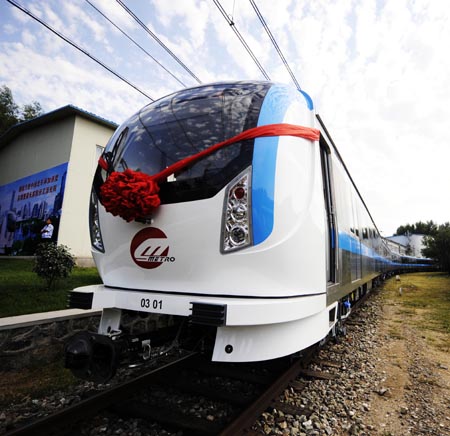Subway craze prompts feasibility questions
 |
|
A new subway train in Shenzhen. [File photo] |
Xu Changle, a professor at East China Normal University, said building subway systems can bring many benefits to cities. Subways can make a full use of underground space, greatly easing traffic congestion haunting many cities now. They also boost the flow of capital, material and talent and stimulate economic growth.
But some people fear that subway construction might fall victim to local governments' blind pursuit of GDP growth. Each 100 million yuan invested in subway construction will lead to 263 million yuan in GDP growth and around 8,000 new jobs.
Xu said that a subway system is not necessary in every city. For example, Xu said the traffic problem in Wuxi could be solved with a highway around the city. And for some cities in northeast China, the economic profit each square meter of land is relatively low, so a subway's contribution to the economy will be limited.
Subway construction requires a huge investment that may be beyond the capacity of some cities. Beijing earmarks about 2 billion yuan every year to cover the loss of subway operations. Subway operations have cost Shenzhen 1 billion yuan since the city opened its first line in 1999. How to build a subway is also an important issue. Yu Hongsheng said a scientific and farseeing plan will be the key to the success of a subway system.
 0
0 






